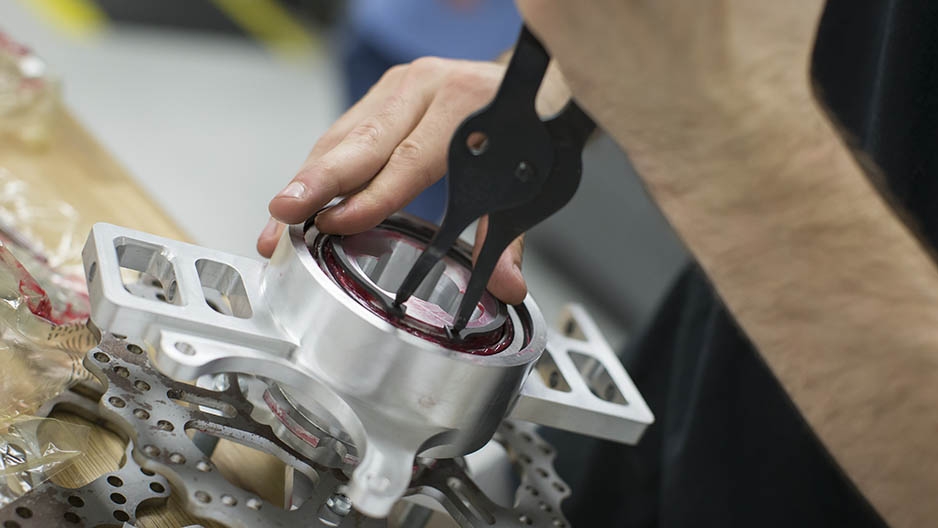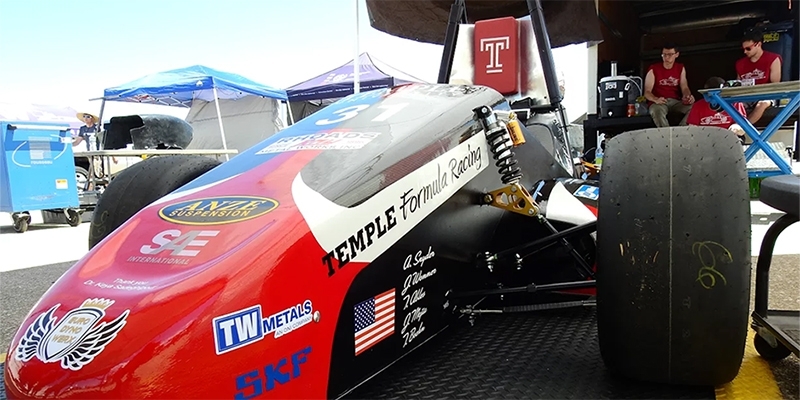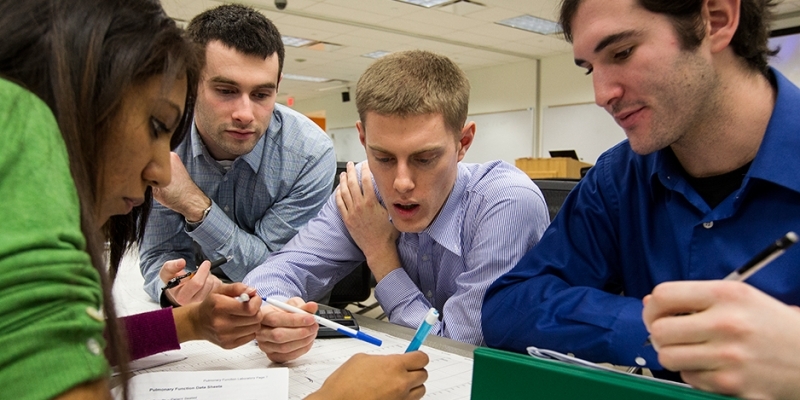Engineering takes brain hackathon prize
Competing with five other universities, Temple’s team of graduate students comes in first place.

A team of Temple graduate students took first place on their home turf at the Institute of Electrical and Electronics Engineers (IEEE) Brain Computer Interface Hackathon—a collaborative brainstorming marathon designed for teams to rapidly produce working prototypes. The team’s winning project was a car remotely controlled by brain and muscle movements tracked through sensors on the driver's body, linked to a computer program they wrote.
PhD students Andrew Powell, ENG ’13, ’15, and Christian Ward, joined by master’s degree students James Kollmer, ENG ’15, and Robert Irwin, ENG ’16, were best in a field of seven teams from five universities and took the $1,000 top prize at the Temple-hosted event. A team from Columbia University finished second and earned $500, while a team from the University of Pennsylvania finished third for $300. The event was judged by a field of experts, including Iyad Obeid, associate professor of electrical and computer engineering.
Powell was elated and attributed the victory to the team's preparation. “We knew that we had to come up with an idea before the event,” he said. “We knew we wanted a car, have it remote controlled, but we also wanted to integrate as much of our creative tools as possible.”
Obeid said the event gave students a taste of the cross-disciplinary nature of electrical engineering. “I was happy that we got to expose students to the real challenges of making neural signals actionable, which can be very rewarding and very difficult,” he said. “And developing something in a very short time frame—that's a good experience.”
Last year the IEEE decided to become actively involved with the Obama Brain Initiative by lending their expertise to find solutions to assist neuroscientists in their pursuits. As part of the increasing cross-disciplinary endeavors in science, this allows engineers to design devices to collect data and unlock the mysteries of the brain.
Obeid said before the event, “There are tool sets electrical engineers have that neuroscientists don’t. They can build gizmos to scan the brain neuroscientists can’t.”
—Marco Cerino


